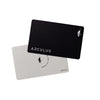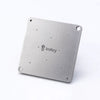
In the dynamic world of cryptocurrency, UK investors are increasingly turning to exchanges and wallets as key tools for managing their digital assets. With a multitude of cryptocurrencies available, it's crucial to find a secure and reliable platform for buying, trading, and storing these digital currencies.
This guide focuses on crypto exchanges and wallets from a UK perspective, weighing their pros and cons. It also offers tailored advice for UK investors to select the most suitable options based on their specific requirements.
Understanding Crypto Exchanges and Wallets
A crypto exchange in the UK context is an online platform enabling the buying, selling, and trading of various cryptocurrencies. Before diving into the details, let's cover the basics. A crypto wallet is a software that stores private and public keys, facilitating the transfer and reception of digital assets across different blockchain networks. Smart use of exchanges and wallets is crucial for effective cryptocurrency portfolio management in the UK.
Crypto Exchanges in the UK
A crypto exchange is where UK residents can trade traditional currency for cryptocurrencies, digital assets, and tangible items. They provide a convenient trading space and act as intermediaries between buyers and sellers, usually charging a fee for their services. These exchanges vary in terms of fees, user experience, customer support, and cryptocurrency variety.
It's vital for UK investors to recognize the differences among exchanges. Some are more secure and reputable than others. Thorough research is key to finding an exchange with a strong reputation, solid security measures, and an intuitive interface. Be aware of geographic restrictions, ensuring the exchange supports UK users.
Understanding the fee structure is also important. Exchanges typically charge a percentage of each trade. These fees can vary, and some platforms might also impose charges for deposits and withdrawals, a consideration for your trading strategy in the UK.
Demystifying the Crypto Wallet for UK Users
A crypto wallet is a software application that stores private and public keys, giving access to your cryptocurrency holdings. It interacts with various blockchain networks, allowing you to send, receive, and store digital assets. Wallets come in different forms, categorized by their security level and accessibility.
Hot wallets (online) and cold wallets (offline) are the two main types. Hot wallets provide more accessibility but less security, while cold wallets offer increased security at the cost of convenience.
UK investors should choose a wallet based on security needs. Cold wallet suit long-term, substantial holdings, whereas hot wallets are better for frequent transactions.
Compatibility with the cryptocurrencies you plan to hold is crucial. Some wallets support only a limited range of cryptocurrencies, necessitating thorough research.
Crypto Exchanges in the UK: A Comparative Overview
Different types of exchanges come with unique advantages and disadvantages, important for UK investors to understand:
Centralized Exchanges (CEXs)
Most popular in the UK, CEXs require accounts and identity verification. They are user-friendly, have lower fees, and provide a large pool of buyers and sellers. However, they are more prone to security breaches and may pose identity theft risks.
Decentralized Exchanges (DEXs)
DEXs offer privacy and security benefits, operating on a peer-to-peer basis without central authority. They are less exposed to hacking but may have lower liquidity and trading volume, posing challenges for quick transactions.
Hybrid Exchanges
Combining features of CEXs and DEXs, hybrid exchanges offer security and liquidity. They are generally newer and may offer fewer options than established exchanges.
A Comparative Analysis for UK Investors
When choosing an exchange in the UK, consider:
Security and Safety
Exchanges with robust security features, such as two-factor authentication, are preferable.
Fees and Costs
Lower fees are attractive, with CEXs often cheaper than DEXs.
Trading Volume and Liquidity
High trading volumes in CEXs facilitate easy trades.
User Interface and Experience
CEXs are typically more user-friendly.
Customer Support and Reputation
Exchanges with strong customer support are vital for UK users, especially beginners.
Varieties of Crypto Wallets for UK Users
Hot Wallets:
Online wallets offer accessibility but lower security.
Cold Wallets:
Offline wallets provide enhanced security, suitable for large holdings.
Hardware Wallets:
Physical devices storing private keys offline, balancing security and usability.
Paper Wallets:
Printed keys offer high security but risk if lost or damaged.
For UK investors, choosing the right cryptocurrency exchange and wallet depends on the intended cryptocurrencies, trading experience, and risk tolerance. Consider security, fees, trading volume, user experience, and customer support when selecting an exchange. For wallets, focus on security, availability, and ease of use.
Making informed choices aligns with your investment goals, enabling a confident and well-informed approach to your cryptocurrency ventures. Evaluate your needs carefully to find the most suitable crypto exchange and wallet for your needs in the UK.



















































